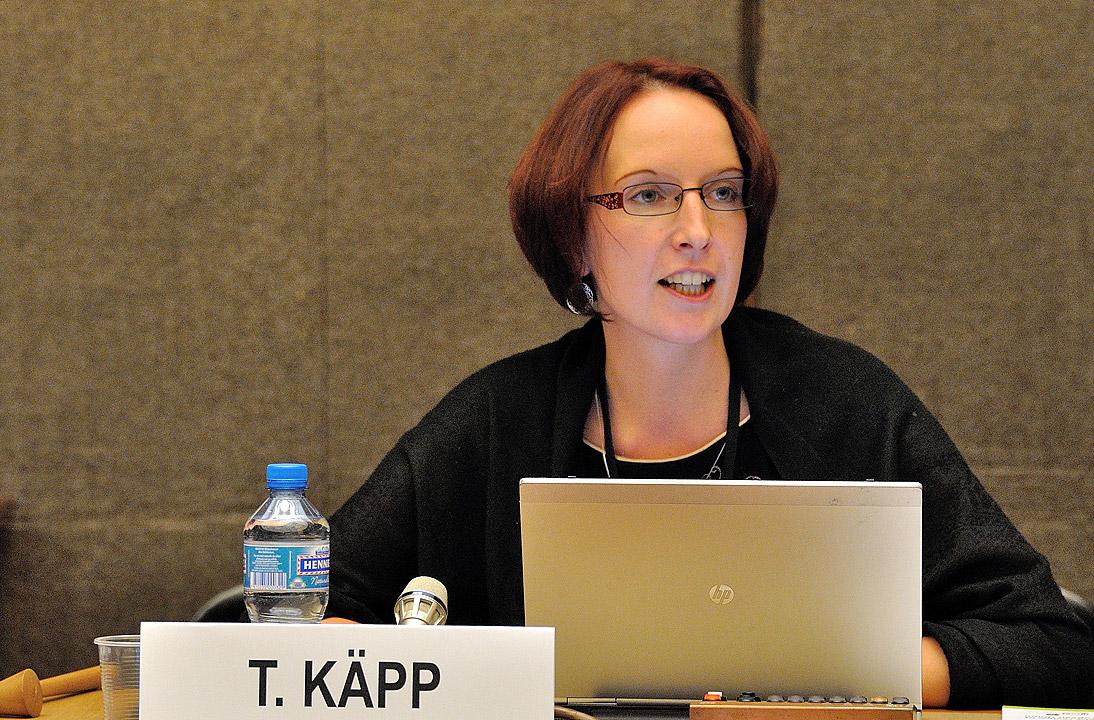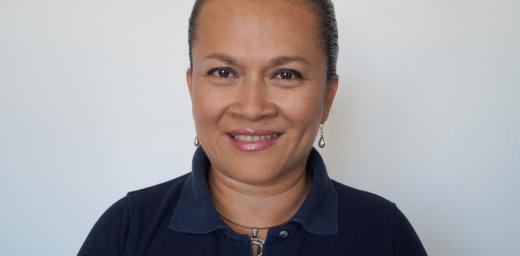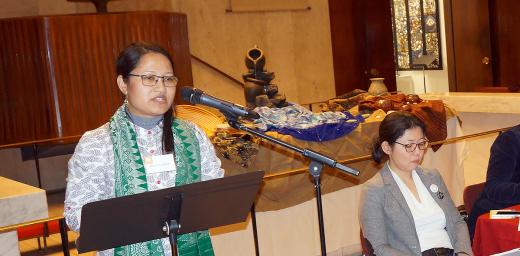20 years after the Beijing World Conference on Women: What does the ECE region’s picture look like?

Rev. Triin Käpp moderating a panel discussion on violence against women at the UN in Geneva. Photo: NGO CSW Geneva
By María Cristina Rendón, Program Assistant in Women in Church and Society
Room XVII at the United Nations in Geneva has witnessed hundreds of discussions on human rights, power-related issues, and the hopes and failures connected to peace and reconciliation at a global level. But from November 3-5, 2014, Room XVII became a space for more than 700 women (and a few men) to examine where the ECE region, which includes 56 countries from Eastern, Central and Western Europe, and North America, is in terms of the 12 critical areas identified at the 4th World Conference on Women in Beijing in 1995. These areas include women in decision-making, violence against women, women and health and education, poverty and human rights for women.
The Geneva NGO Committee on the Status of Women (NGO CSW Geneva) organized the ECE review. The Lutheran World Federation (LWF) Women’s program (WICAS), a member of this network, was asked to select a moderator for a roundtable on violence against women initiated by the World Young Christian Women’s Association (YWCA). Rev. Triin Käpp from the Estonian Evangelical Lutheran Church led a meaningful discussion with outstanding presenters active in the area of protection, advocacy and research to end violence against women.
Pierrette Pape, policy officer of the European Women’s Lobby and one of the panelists, affirmed that one of the most concerning realities of violence against women is the fact that many societies understand this scourge as a private issue, the personal not being political anymore (relating to the rallying feminist cry during the late 1960s and 1970s: “the personal is political”). Placing the responsibility of being vulnerable on the victims themselves perpetuates the idea that the situation they face is a matter of choice, rather than the result of failures in protection mechanisms and the lack of policies to strengthen awareness and equal opportunities for women and men, girls and boys.
For Rev. Triin Käpp “being part of the discussions in Geneva brought up the reality of violence against women as a challenge present in every society, although its expressions can vary. Irrespective of the type of abuse: physical, verbal or psychological, it is crucial to address the situation from a pastoral point of view. How to be there for those who have experienced violence? How to recognize them? This is a first step in a congregation. More important is, how to prevent violence?”
The Beijing+20 review drilled down through the realities behind the economic indicators for the ECE region, where the financial crises of the past years in several countries have relegated the debate on the situation of single parenting families (the hardest hit by poverty in the region), the setback in sexual and reproductive health and rights, and the significant gender pay gap in most countries, including developed economies like Switzerland (18% of pay gap in average, but reaching over 30% in top management positions ) and Canada (18% in the public sector and 27% in the private sector).
Among the few men that actively participated in this review, there were two representatives of the White Ribbon coalition in Switzerland. Dr. Nago Humbert, founding member of Médecins du Monde, reflected with sadness on the upcoming 25th anniversary of the fatal shooting of 14 female students in Canada, (killed on December 6, 1989, by a young man who directed his anger against them after his unsuccessful application to Montreal Polytechnic), that the Canadian government has recently exhibited a trend toward weakening gun controls. For Dr. Humbert, “such a step would mean to shoot the victims a second time.”
Phumzile Mlambo Ngucka, Executive Director of UN Women, expressed her concerns about the current situation and the mild language that is being used regarding women’s human rights. “We need to get angrier! Percentages of participation of women in different spheres that are less than parity are not acceptable and have become the standard. If countries had stuck to the commitments they made in Beijing almost 20 years ago, many of the challenges would have been overcome. But the reality is that the situation of millions of women has worsened since then and our statements and the language we use need to reflect that setback,” she said.
The outcome of the panels on the 12 areas of concern were formally presented to the UNECE inter-governmental meeting on 6-7 November in Geneva and the word that certainly will be found in each recommendation will be the same: Implementation... implementation... implementation...





